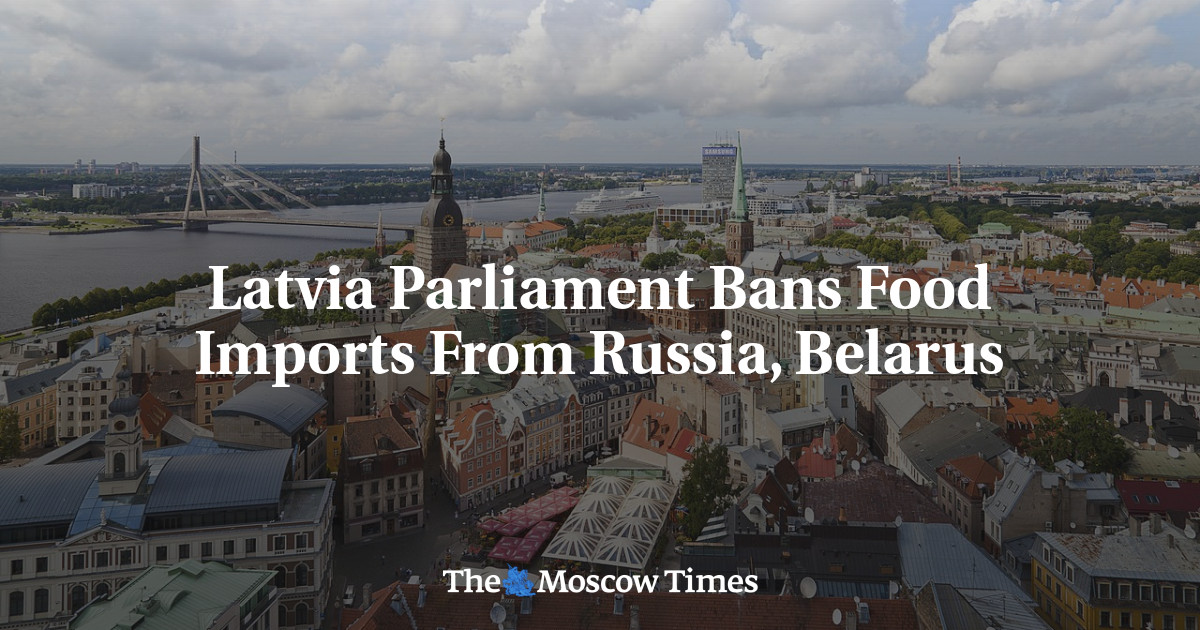
Latvia’s parliament on Thursday banned the import of food products from Russia and Belarus, including via intermediary countries, following protests by farmers over “blood grain” imports.
Earlier this month, thousands of farmers demonstrated in 16 towns across the country calling for a ban on Russian grain — which they said was funding the Kremlin’s war efforts in Ukraine.
The amendment, which still needs approval by President Edgars Rinkevics, will be in force until July 2025, at which point it can be extended if necessary.
The ban does not apply to grain passing through Latvia on its way to other countries in the European Union.
“We are acting quickly to impose the import ban, but the transporting of grain from Russia and Belarus through our seaports remains a delicate matter,” Agriculture Minister Armands Krauze said.
“Latvia can ban its imports from Russia, but only the EU can agree on a coordinated action when it comes to banning the transit of Russian products into EU territories,” he added.
Latvia is a major importer of Russian food produce, including cereals and oilseeds.
Despite producing an annual surplus of 3 million tons of grain per year for export, Latvia imported 425,000 tons of Russian grain last year — an increase of 60% compared to 2022, customs figures show.